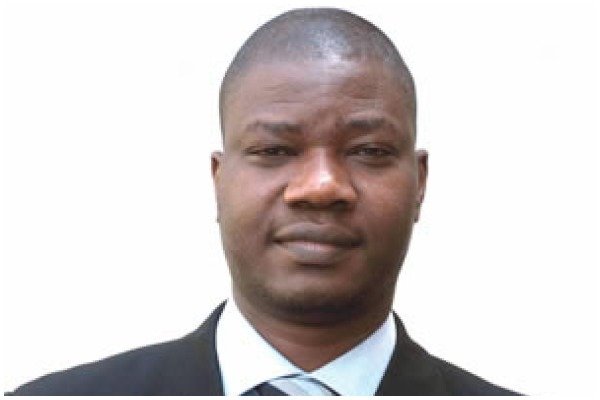
“ONLY great teachers can produce excellent pupils and students that will make the future of our country great. A positive or negative influence of a teacher on any child will have an effect on that child. Therefore, the Federal Government is ensuring quality education.”
– Minister of Education, Mallam Adamu Adamu on October 5, 2020 while commemorating World Teachers’ Day.
I was a teacher, son of a retired teacher and village headmaster. I have had a stint teaching in Ibadan, shortly before my National Youth Service Corps; during my youth service in Asaba, Delta State and in a private school in Lagos before I got the job that brought me to Abuja in 2002. My father, Deacon Isaac Oyeniyi Ojo, of blessed memory was a thoroughbred teacher. Apart from his Grade II certificate, he also endeavoured to acquire a Certificate in Education from the University of Ibadan. He taught for 35 years (1960 – 1995). Why this brief history of my dad and me? It is to show my love for knowledge impartation which rubbed off on me from my disciplinarian father. Teachers’ reward is said to be in heaven. True! My father didn’t have many assets to his name. Our living standard was below average. However, it is gratifying that the President, Major General Muhammadu Buhari (retd.), has deemed it fit to improve the working and living standard of Nigerian teachers.
On Friday, April 8, 2022, the Senior Special Assistant to the President on Media and Publicity, Mallam Garba Shehu, issued a press statement that President Muhammadu Buhari has assented to four bills recently passed by the National Assembly including Harmonised Retirement Age for Teachers in Nigeria Act, 2022. Others are, Nigeria Law Reform Commission Act, 2022; National Biotechnology Development Agency Act, 2022 and Federal Medical Centre, Hong (Establishment) Act, 2022. According to him, the Harmonised Retirement Age for Teachers Act provides for the retirement age of teachers in Nigeria.
The Federal Executive Council had in January 2021 approved a new bill to increase the retirement age of teachers in the country. The president transmitted the bill to the National Assembly in June of last year. “Section 1 of the Act clearly states that teachers in Nigeria shall compulsorily retire on attainment of 65 years of age or 40 years of pensionable service, whichever is earlier. While the provision of Section 3 of the Act provides that the Public Service Rule or any Legislation that requires a person to retire from the Public Service at 60 years of age or after 35 years of Service shall not apply to Teachers in Nigeria.”
Recall that on October 5, 2020, during the commemoration of World Teachers Day, President Buhari, represented by the Minister of Education, Mallam Adamu Adamu, unveiled the president’s new welfare packages to the teachers. Highlights of the text of his speech include a special salary scale for teachers in Nigeria. A “special pension scheme to enable the teaching profession to retain its experience and talents as well as extend teachers’ retirement age to 65 years and the duration of teaching years to 40 years.” The president also approved the building of low-cost houses for teachers in rural areas and the sponsorship of teachers just as he assured of prompt payment of salaries and timely promotion to eliminate stagnation. This is in addition to the Teachers Conversion Programme and ICT training to mitigate the current dearth of qualified teachers in the school system.
The president observed further that “In order to attract the best brains into the teaching profession, the policy of encouraging the best graduates to take up careers in teaching is hereby restored. The reintroduction of bursary award to education students in universities and colleges of education with the assurance of automatic employment upon graduation is now a new policy. The payment of stipends to Bachelor of Education students as well as granting them automatic employment after graduation is now government policy. The Tertiary Education Fund will now fund teaching practice in Universities and Colleges of Education.” It added that there should be a “special salary scale for teachers in basic and secondary schools, including provision for rural posting allowance, science teachers allowance and peculiar allowance.”
The president in his speech was quoted as saying: “The minister of education is hereby directed to ensure an accelerated implementation of these policies and measures in collaboration/liaison with states/local governments, the Office of the Head of Civil Service of the Federation, the National Salaries, Incomes and Wages Commission and of her relevant agencies in the system to enthrone a culture of competence, discipline, dedication, increased learning outcomes and better service delivery in the education sector in Nigeria.”
What has been at play since October 2020 is bureaucratic bottlenecks. After the president’s pronouncement on the new welfare package for teachers, an implementation committee was set up with six sub-committees. However, what is heartwarming is the gradual implementation of the new measures for Nigerian teachers who have been impoverished by poor remuneration and condition of service. There’s a slang in my part of the world that says “how much does a teacher earn that he’s using saliva to count his salary?”
I was on Nigerian Television Authority magazine programme, Weekend File, to x-ray the implication of new welfare schemes for teachers last Saturday, April 16, 2022. As observed on that programme, it is a welcome development, laudable, commendable and exemplary. It will boost the morale of teachers and ‘ginger their swagger’. However, my major concern has to do with state governors and the private school proprietors. I read that some governors are grumbling that the president did not consult them before making the pronouncement and that they do not have the financial wherewithal to implement the welfare scheme. This is unfortunate. Teachers are destiny-moulders. They train future leaders. Only an infinitesimal number of people can lay claim to have been self-tutored. Most of us doing great in our chosen career today are trained by teachers. Why shouldn’t their welfare be a priority?
Yes, education is on the concurrent legislative list and as such, each state may want to pass its own legislation or policy for their teaching staff. However, I am of the opinion that all the states in Nigeria should adopt the Federal Government’s kind gestures to the teachers. More worrisome are the private schools. Many of the teachers in that sector are not professionals. Most of the teachers in private schools did not study education which is a sine-qua-non to teaching in public primary and secondary schools. Not only that, the welfare scheme is also alien to most private schools. They pay their teachers peanuts despite charging parents high tuition fees and other levies. They also hire and fire teachers with impunity. There’s a high turnover of teachers in private schools because of the high-handedness of school proprietors and administrators. They are taking advantage of the high rate of unemployment to exploit their teachers and non-teaching staff. The Ministry of Education should see to the reversal of this modern-day slavery in private schools in Nigeria.
Copyright PUNCH.
All rights reserved. This material, and other digital content on this website, may not be reproduced, published, broadcast, rewritten or redistributed in whole or in part without prior express written permission from PUNCH.
Contact: [email protected]





